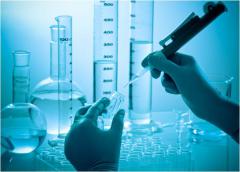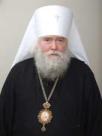Sunday, December 14, 2014
GM Wheat and Scientific Technology: Is It Safe?
 Ever since the Renaissance, man has begun to reshape society, discovering or inventing new ways to propel civilisation forward. A lot of this progression is due to science and the development of technology, allowing mankind to revolutionise the meaning of life. One such revolutionary example is the production of genetically modified (GM) foods, such as wheat. Though there might be advantages to GM foods (helping out farmers and producers), there are also disadvantages and risks that must be considered.
Ever since the Renaissance, man has begun to reshape society, discovering or inventing new ways to propel civilisation forward. A lot of this progression is due to science and the development of technology, allowing mankind to revolutionise the meaning of life. One such revolutionary example is the production of genetically modified (GM) foods, such as wheat. Though there might be advantages to GM foods (helping out farmers and producers), there are also disadvantages and risks that must be considered.
Recently, there has been much contention over the CSIRO’s (Commonwealth and Industrial Research Organisation) decision to trial GM wheat in Australia. Using scientific technology, the CSIRO has managed to suppress an enzyme in wheat, effectively changing the genetic makeup. However, this shutdown of the enzyme can lead to health problems in humans if wheat is ingested. Professor Jack Heinemann of the University of Canterbury in New Zealand stated in his report that the enzyme being suppressed in wheat is similar to the human enzyme that produces glycogen (a carbohydrate that stores energy in plants and animals). He goes further to say that if GM wheat was ingested, humans would experience a decline in glycogen production, leading to liver failure, or even early death in children.
Genetically modified food is not the only form of scientific technology that has been under the spotlight in today’s society. Stem cell research, cloning and designer babies have all been under the pump of society and many people voice their opinions about the new methods – both for and against. Personally, I’m against the new forms of scientific technology, not only because I’m a Christian, but it’s also my personal opinion. Though I can see the appeal of GM foods – it might help farmers and the agriculture industry – I don’t see the grand appeal of stem cell research and designer babies. I think it’s barbaric to even consider thinking of killing discarded embryos that haven’t had the chance to grow and develop, all in favour of creating perfect people. The only being capable of creating perfect people is God, and we shouldn’t attempt to rise to His station and omnipotence. We are not God, but merely his servants.
Last year during Yr 12, my Biology class had a discussion about the benefits/risks of scientific technology. I remember one girl saying that she would rather terminate an embryo if it had disabilities than let it suffer and be alive. Now, that might be seen as being merciful, but I felt disgruntled and shocked when she said this. I thought to myself: why kill an innocent being because of its disabilities? Shouldn’t it have the chance to live? There are many people around the world who suffer from diseases such as Down syndrome or autism, and yet they manage to not let that disability disadvantage them in any way. Moreover, some of the most famous people who have shaped the world have done so with a disability or disease. Stephen Hawking and Albert Einstein, two of the most prolific mathematicians, both have/had disabilities, but they didn’t let that prevent them from contributing to the world of mathematics and physics. Beethoven and Mozart were able to compose the most beautiful and melodic pieces despite their misgivings, and Vincent van Gogh was able to paint awe-inspiring paintings despite his bipolar disease.
 Everyone is imperfect in some shape or form, and it’s wrong to try to rectify the imperfections in the world. What’s worse, is that I think we are slowly starting to accept the scientific technology which is slowly changing the way society thinks and processes information. It scares me to think that soon, no one will be individual and we will all look the same, think the same. Essentially, we will become puppets on a string, bending to the will of the puppet-master, accepting everything we’re told without so much as a second thought about why we must accept it.
Everyone is imperfect in some shape or form, and it’s wrong to try to rectify the imperfections in the world. What’s worse, is that I think we are slowly starting to accept the scientific technology which is slowly changing the way society thinks and processes information. It scares me to think that soon, no one will be individual and we will all look the same, think the same. Essentially, we will become puppets on a string, bending to the will of the puppet-master, accepting everything we’re told without so much as a second thought about why we must accept it.
We must try to dissuade ourselves from the pull of science and remain steadfast in our beliefs and in our faith in God. Though it may seem we are the minority in a world of science and corporate power, we are the majority that will inherit Paradise.
Sophia Desiatov





